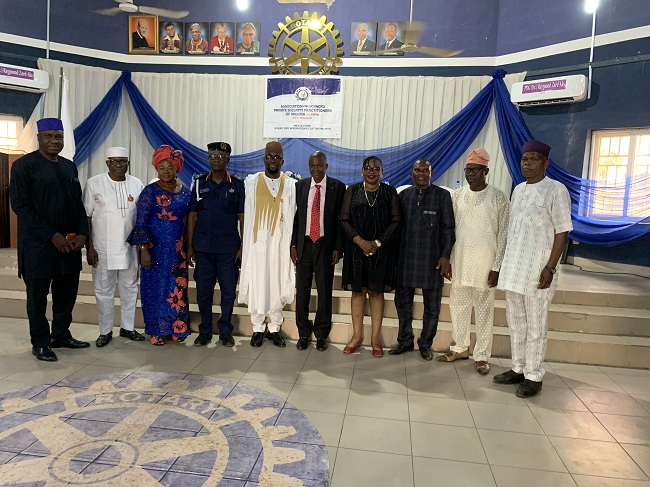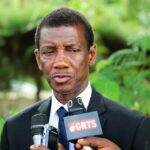A former-Attorney General and Commissioner for Justice in Oyo State, Mr Mutalib Adebayo Ojo (SAN), has urged both the state and Federal Government to include Licensed Private Security Practitioners of Nigeria (ALPSPN) into the security architecture of the country
Ojo disclosed this during an interactive forum organised by the ALPSPN, Oyo State chapter, on Wednesday, at the Rotary House, Iyaganku, Ibadan.
He said ALPSPN also needs to engage their men and officers in latest training in order to meet up with other security forces across the world, just as he urged the Federal Government to grant the association permission for its officials to carry arms.
The former Attorney-General lamented the various security challenges like kidnapping, thuggery among others facing by ALPSPN members, adding that arming them would help them contribute their quota to tackling insecurity in the country.
He stated that: “There is the need for ALPSPN to take part in the security architecture of the country. They have been doing a good job alongside other security agencies in the country.
“They also need to engage their men and officers in further training in order to be abreast and in tune with the latest security operatives in the country so that they will not be behind.
In his remarks, the chairman of the association, Mr Seyi Alaba, said private security business in Nigeria is a very delicate and dangerous business, just as he urged the FG to include them into the security architecture of the country.
“Alaba, who is the managing director of PG Security, said: “Nigeria is heading for an election and all these security agencies are already preparing; but one thing that we are missing here, we are also security practitioners, though we are private, but the government is not thinking of including us in the security architecture of the state/country.
“So some of what we have discussed today (Wednesday) is to advocate for that inclusion, that the state and the Federal Government should include private guard companies into the security architecture of the state and country.”






